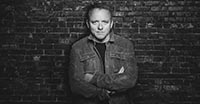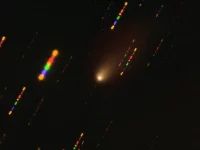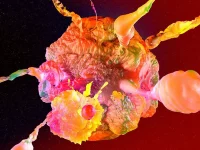Interview. Dennis Lahane. « It’s a question of interest »

Interview. Mr. Lehane, French crime author George Simenon once said, “A bloody life is better than a boring marriage.” Do you agree? No, I agree with what Flaubert said, which was: “Be bourgeois and boring in your life, so that you can be violent and passionate in your fiction.”
Well, you certainly have been violent in your books. In the first scene of your recent book Live by Night, the main character gets his feet placed in a tub of cement and is about to be thrown into the ocean… What is important to know when writing a gangster epic? I believe imagination is more important than knowledge. Stephen Crane wrote The Great American War Novel and he was never anywhere near a battlefield. To write about a gangster, or anything, you start not with the gangster, but with the person. Then you get into their job.
How much of a murderer is in any one of us? It’s the times, it’s the circumstances. To be honest it’s what I call The German Question. Let us assume that after World War I there’s no Hitler and an entire generation of Germans goes through the world thinking that they are moral, that they are upright. They don’t become camp guards, none of those things happen. I think people are only as moral as the pressures and the circumstances that are around them and very few groups have ever had to really look at it in the face. The German Question is the same as the American West Question where these people go out to settle the American West and slaughter an indigenous people. Look at the worst people in the history of the world, the worst people that we can think of, I would say only Joseph Stalin woke up and said, “I’m evil.” He just seems like that type…
Do you tend to see the best in people? There’s a line I put in one of my books that I think is the most telling line about me. Somebody says, “Your problem is, you see the best in the worst of people and the worst in the best of people.” And that’s kind of my view of humanity. If you point out somebody and say, “That’s a terrible human being,” I’m like, “Really? I’ve got to go talk to him.” But if you say, “That person, that’s a saint,” I’m walking in the other direction because I don’t believe you.
What makes you hate somebody? I don’t truly hate anybody.
Really? I’ve come close. I will intensely dislike somebody, but hate to me is a very simple definition: to hate means you would push somebody in front of a moving truck. I’m not there. I might position you so that truck would hit a puddle and that puddle would land on you.
Do you believe in life after death? I do.
What do you think it looks like? If there’s an afterlife we’re already there. There’s no time. So if you’re loved one is dead, they’re not sitting up there alone. You’re already with them, because time is that fast [snaps fingers]. Beyond that I believe that whatever is out there in the universe, my feeling is that it’s benevolent. There’s a late twentieth century theory that hell is not fire, hell is absence from God.
Growing up you were educated by nuns and Jesuits. Was that a good preparation for a career as a writer? Yes, definitely. The Jesuits’ foundational philosophy is: for every answer there is another question. That’s a very good way for a dramatist to approach things. It keeps you from oversimplifying.
Your books Mystic River, Gone Baby Gone, and Shutter Island all went on to be adapted into major films. Do you ever think about that possibility while you are writing, given how likely it is? Never when I’m writing… Maybe in the back, back, back of my lizard brain. I can’t ignore it at this point, knowing that in Hollywood they’re under the assumption that I have some type of Midas touch.
People say that Clint Eastwood called you about adapting Mystic River and as fast as he said, “Can I?” you said, “Yes, you can!” It wasn’t that fast, but it was close. He had borrowed the book from a friend of his, he read it, he called me on that weekend and said he wanted to do it. I said I didn’t want to sell it. We had a couple more phone calls and he convinced me and then I sold it. There was nobody else involved in the process except for me and Clint.
I read that your novel Live by Night is also being adapted for the big screen, with Ben Affleck directing. That’s who is attached, yes. I’ve seen his script, it’s a very good script, but it’s up to what Ben’s schedule allows. He’s out playing Batman right now, so we’ll see what happens…
In Live by Night you looked deeply into the lives and habits of gangsters in America’s prohibition years. Many people would say that those years weren’t America’s worst. God no, the opposite. The benefits that came out of Prohibition were: The Jazz Age, as in jazz flowered; women’s liberation, women were suddenly crossing over thresholds they could never go to before; it gave us a true sense of liberation identity. People said, “I’m sorry, we’re not going to do this.” This is civil disobedience at a national scale. On the other hand, it gave one very ugly thing to the United States, which was extreme power to organized crime – it organized crime. That was a negative without a doubt and it corrupted…
You’ve proven yourself as a writer in the crime genre. Would you be able to write a good romance as well? Is it a question of talent? It’s a question of interest. My interests pull me towards questions about violence, questions about class, questions about the haves versus the have-nots. These are not things that necessarily would pull me towards writing a rom-com. So no, it’s not a matter of talent. It’s a matter of passion, it’s a matter of interest.
You wrote your first book A Drink Before the War in a few weeks and then waited to get it published for several years. How did you have the patience to wait so long? I wasn’t patient, I was 25 years old and bored! I didn’t have any power, I didn’t have a publisher, I didn’t have an agent – I didn’t have anything. And then when I did finally get an editor, she made me rewrite the entire thing anyway. It was a great editor, we’ve had a great relationship ever since.
Gone with the Wind was famously rejected by publishers 17 times before it got published. Catch-22 was the most famous. I think Catch-22 was rejected by every single major publisher in New York, and all the minor ones too, and then it became Catch-22.
That gives us hope. There’s hope. (Talks)










